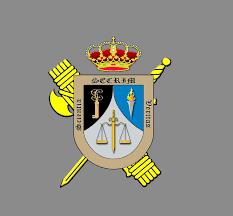Spanish National News
VOTING IN THE EUROPEAN ELECTIONS
Every five years EU citizens choose who represents them in the European Parliament, the directly-elected institution that defends their interests in the EU decision-making process.
Each member state has the right to elect a fixed number of Members of …
Every five years EU citizens choose who represents them in the European Parliament, the directly-elected institution that defends their interests in the EU decision-making process.
Each member state has the right to elect a fixed number of Members of the European Parliament (MEPs).
The allocation of seats is laid down in the European treaties on the basis of the principle of degressive proportionality: countries with a larger population have more seats than smaller countries, but the latter have more seats than strict proportionality would imply. For the 2014 election, according to the Lisbon Treaty, the number of MEPs ranges from six for Malta, Luxembourg, Cyprus and Estonia to 96 for Germany.
Voting practices vary across the EU, although there are some common elements, the most important of which is that some form of proportional representation should be used.
This gives larger and smaller political parties the chance to send their representatives to the European Parliament in line with the number of votes they receive. However, each country is free to decide on many important aspects of the voting procedure.
For example, some split their territory into regional electoral districts, while others have a single electoral district.
Countries may also decide on the exact day of the elections according to their voting traditions. European elections usually span four days, with voting in the UK and the Netherlands taking place on Thursday and residents of most other countries casting their vote on Sunday.
Elections are contested by national political parties but once MEPs are elected, most opt to become part of transnational political groups. Most national parties are affiliated to a European-wide political family so one of the big questions on election night is which of these European groupings will exert greater influence on the decisions taken in the next legislative term.
The European Council must take the election results into account when choosing a nominee for the post of President of the European Commission, the executive arm of the EU.
With the entry into force of the Lisbon Treaty, the European Parliament has become a powerful co-legislator and plays a determining role in shaping European policies.
A vote in the European elections is every citizen’s chance to influence the shape of the Parliament and the decisions it takes over its five year mandate.
—
Jean Paul Mulero
Director Oficina de Atencion al Residente Internacional (OARI)
Ayuntamiento de Torrevieja
Filed under: http://www.theleader.info/article/42210/
Car and Motor Insurance | Spanish Home Insurance | International Money Transfers | Send Money to Spain | Spain Property | Online International Payments | Property in Spain
Costa Blanca Property for Sale | Cabo Roig Property for Sale | International Payments |





























